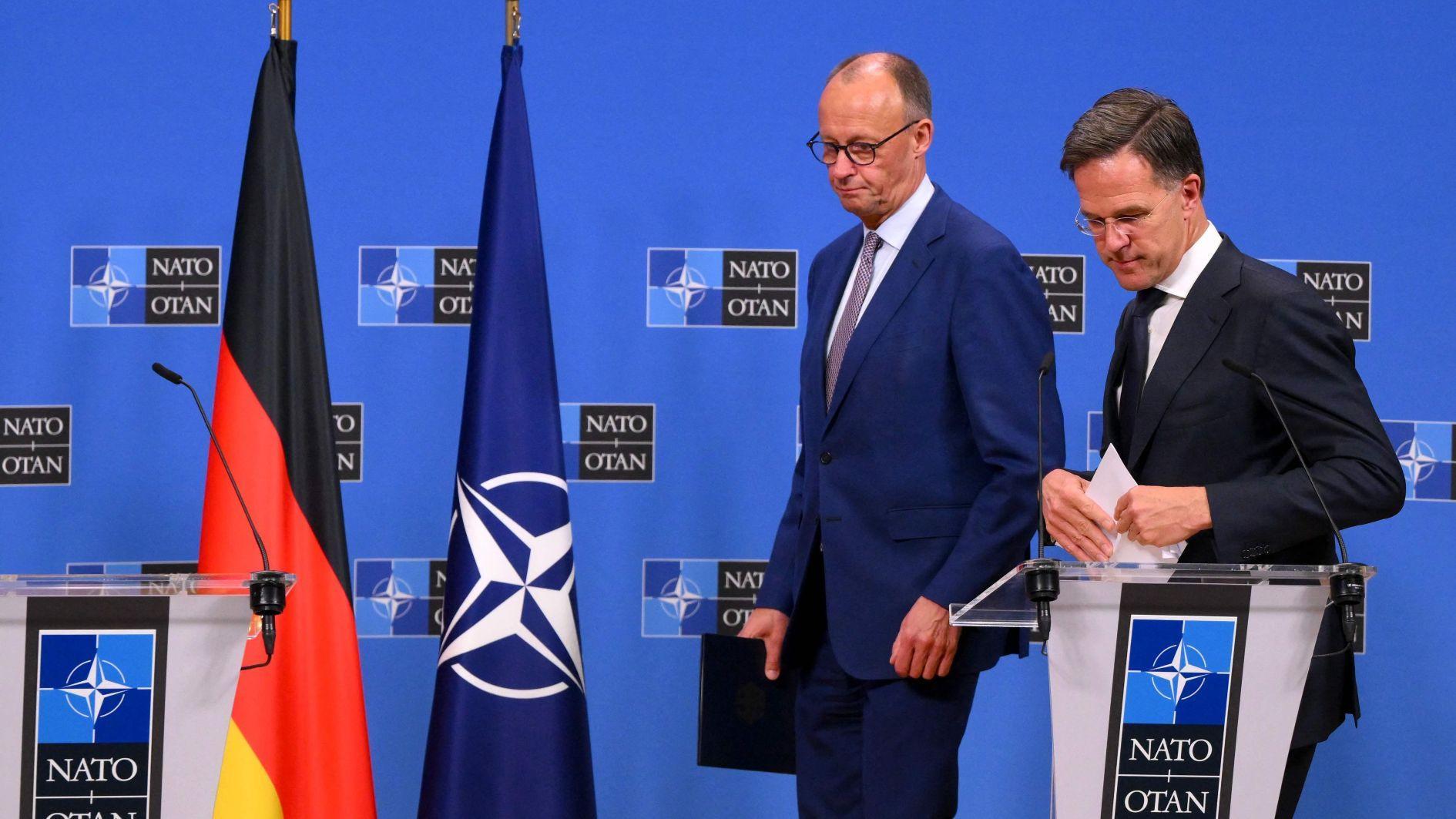
German Defense Minister Boris Pistorius did not endorse calls by his Foreign Ministry colleague Johann Wadephul to follow U.S. President Donald Trump's demand that NATO members spend 5 percent of GDP on defense.
Whatever is agreed upon at the NATO summit, "the decisive factor is that the NATO capability goals are fulfilled quickly, comprehensively, and on time," Pistorius said at a news conference with Secretary of State for Defense John Healy in Berlin.
“Of course, in the end, we're talking about 3 percent or more…. We need to move away from a purely input-oriented approach to an outcome-oriented approach. That is, what is the outcome of what we do?” he added.
Pistorius stressed it is “crucial that we ensure deterrence and defense by doing what the NATO experts propose at the NATO summit, which is then decided upon.”
German Foreign Minister Johann Wadephul backed Trump's call for a massive increase in NATO members' defense spending.
Speaking to reporters during an informal NATO foreign ministers meeting in Türkiye, Wadephul indicated Germany's willingness to follow Trump's demand that NATO members spend 5 percent of GDP on defense.
“And we will follow him on this. And we see in this a clear commitment from the U.S. to Article 5 of the alliance. NATO stands closely together. And everyone must know that this defense alliance has become stronger through this deplorable war in Ukraine and stands more united than ever before,” Wadephul said.
The German foreign minister made the remarks following his talks with U.S. Secretary of State Marco Rubio on the sidelines of the NATO meeting. Wadephul reiterated that Germany wants to assume a leading role in Europe's defense by significantly investing in defense and modernizing its armed forces.
“The Americans are very satisfied with what Germany is delivering. I have said that we are ready to take on a leadership role in Europe. To set an example and to demand that others follow us. There is complete agreement with the U.S. on this,” he told reporters.
NATO's current target for member countries is to spend at least 2 percent of their GDP annually on defense. Germany has only recently met this threshold after significantly boosting its defense budget. A proposed increase to 5 percent would mean Germany would need to allocate approximately €225 billion ($250 billion) for defense.
New financial headache for Merz amid defense goals
Germany forecasts its tax revenues will be tens of billions of euros lower in coming years than previously expected, potentially hampering the new government's plans to ramp up spending.
An official estimate showed that tax revenues will be some 81.2 billion euros ($90.1 billion) lower between 2025 and 2029 than expected when the last forecast was published in October.
This was in part due to recent tax relief measures, the finance ministry said.
The lower tax take could hit new Chancellor Friedrich Merz's plans to unleash a fiscal "bazooka" intended to lead to vast extra outlays on defense and infrastructure in the coming years.
Finance Minister Lars Klingbeil said the forecasts showed that "we must strengthen revenues through higher economic growth. This is the only way to gain new financial room to maneuver."
Prominent industry federation BDI echoed the sentiment, calling for a "clear focus on economic growth."
"The government should make structural reforms and a rapid budget process their top priority with the clear goal of promoting growth and competitiveness," said the group's director general, Tanja Goenner.
Merz has promised a blitz of reforms to get Europe's top economy back on its feet after two years in recession, from slashing corporate taxes to cutting red tape.
Earlier this week, he also said that his government will seek to make Germany's military "the strongest conventional army in Europe" at a time of rising geopolitical uncertainty.
The government faces myriad challenges, however, from a manufacturing slump to weak export demand.
Trump's tariff blitz also threatens to hit leading exporter Germany hard, with the government last month slashing its growth forecast for this year to zero.